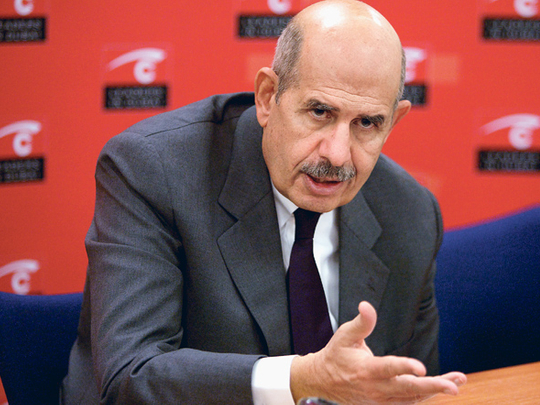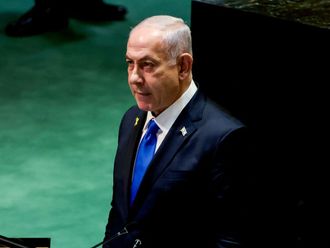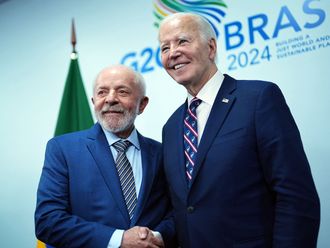
Cairo: A week after his return to Egypt where he received an exuberant welcome, Mohammad Al Baradei, the former chief of the UN atomic watchdog, is the target of a legal complaint alleging he is working for foreign powers and inciting political instability in the country.
In his complaint lodged with Egypt's Chief Prosecutor, Khaled Abdul Fatah, a political activist, claimed that Al Baradei, a potential presidential contender, exploits opposition's hatred to the regime of President Hosni Mubarak to "agitate public feelings and incite a political revolution” in the country.
Al Baradei, who won the Nobel Peace Prize in 2005, announced on Monday the creation of a 30-member coalition led by him to press for democratic reforms in Egypt. The coalition, named the National Assembly for Change, comprises activists from Egypt's political spectrum.
"Al Baradei could be part of an American and Zionist plan to put pressure on Egypt to make concessions,” added Abdul Fatah in his complaint. He said that there is co-ordination between Al Baradei and Sa'ad Al Deen Ebrahim, an Egyptian-born political dissident now living in the US. "This raises doubts about the powers that urge Al Baradei to run in Egypt's presidential race,” added Abdul Fatah, who heads the non-governmental group "Citizens against Political Stupidity”.
There has been no comment from Al Baradei, who was to leave on Saturday for Germany to receive a prestigious medal.
Late last year, Al Baradei, an ex- diplomat, said he considers running for Egypt's top post in the 2011 elections, but he made his bid conditional on getting guarantees to ensure honest and fair elections. His bid stunned politicians in Mubarak's National Democratic Party and the government-owned newspapers that said he is not eligible for the job for being away from Egypt for 27 years.
Al Baradei's announcement has, however, drawn applause from ordinary Egyptians and anti-Mubarak activists. Since his homecoming on February 19, Al Baradei, 67, has been the focus of political and media attention in this country, which is the Arab world's most populous.
But under Egypt's current constitution, it is impossible for people like Al Baradei to contend with Mubarak, who has been in power since 1981. Mubarak, 81, has yet to say if he will seek a fresh tenure after his current fifth tenure expires in 2011.













